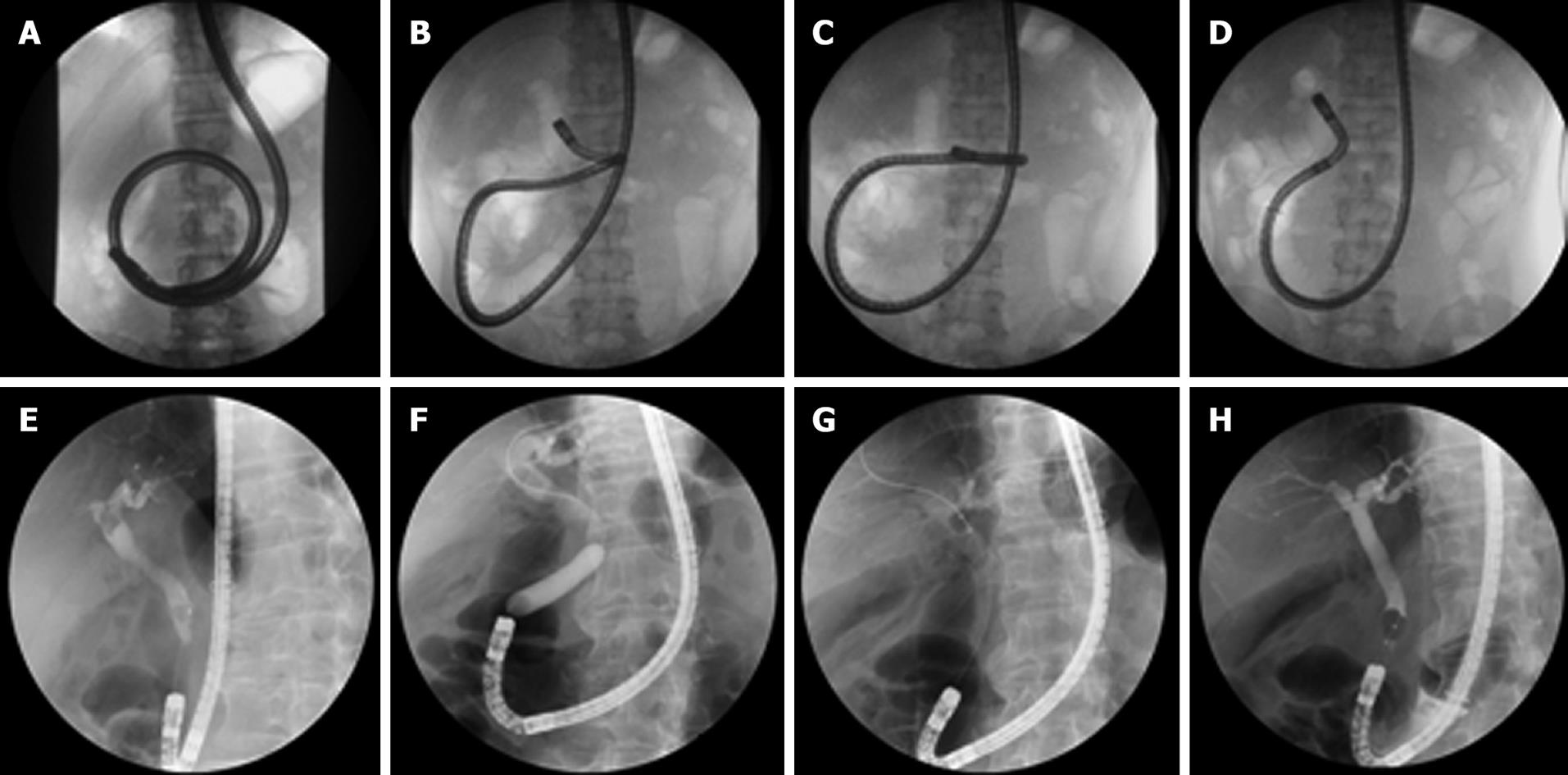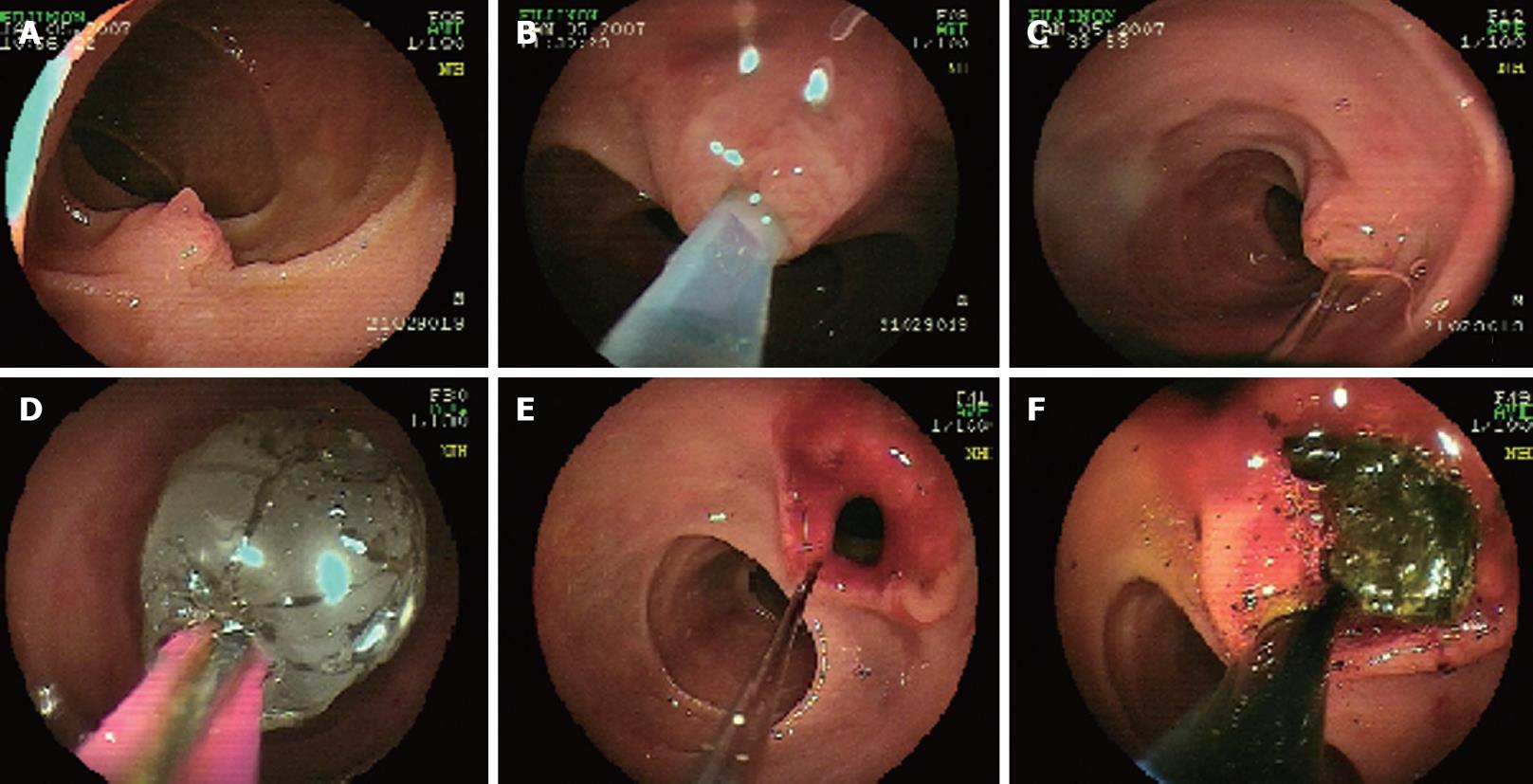Copyright
copy;2010 Baishideng Publishing Group Co.
World J Gastroenterol. Sep 28, 2010; 16(36): 4594-4598
Published online Sep 28, 2010. doi: 10.3748/wjg.v16.i36.4594
Published online Sep 28, 2010. doi: 10.3748/wjg.v16.i36.4594
Figure 1 Fluoroscopy showing the long afferent loop and the major papilla that could not be reached by duodenoscope (A), the long afferent loop that could be shortened by double balloon endoscope and the papilla that could be reached (B-D), stones found after biliary cannulation (E) and endoscopic papillary balloon dilation (F), and stones removed using the balloon (G, H).
Figure 2 Endoscopy showing the papilla reached (A) and successfully cannulated (B) by double balloon endoscope, the guide wire left in the bile duct (C), endoscopic papillary balloon dilation performed (D, E), and stones found using the balloon (F).
- Citation: Lin CH, Tang JH, Cheng CL, Tsou YK, Cheng HT, Lee MH, Sung KF, Lee CS, Liu NJ. Double balloon endoscopy increases the ERCP success rate in patients with a history of Billroth II gastrectomy. World J Gastroenterol 2010; 16(36): 4594-4598
- URL: https://www.wjgnet.com/1007-9327/full/v16/i36/4594.htm
- DOI: https://dx.doi.org/10.3748/wjg.v16.i36.4594














